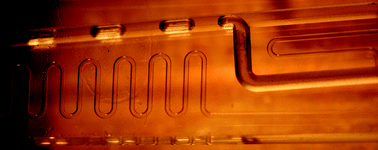Aqueous phase reforming in a microchannel reactor: the effect of mass transfer on hydrogen selectivity
Abstract

Maintenance work is planned for Wednesday 1st May 2024 from 9:00am to 11:00am (BST).
During this time, the performance of our website may be affected - searches may run slowly and some pages may be temporarily unavailable. If this happens, please try refreshing your web browser or try waiting two to three minutes before trying again.
We apologise for any inconvenience this might cause and thank you for your patience.
* Corresponding authors
a
Eindhoven University of Technology, Department of Chemical Engineering and Chemistry, PO Box 513, 5600 MB, Eindhoven, The Netherlands
E-mail:
T.A.Nijhuis@tue.nl
Tel: +31-40-2473671

 Please wait while we load your content...
Something went wrong. Try again?
Please wait while we load your content...
Something went wrong. Try again?
M. F. Neira D'Angelo, V. Ordomsky, J. van der Schaaf, J. C. Schouten and T. A. Nijhuis, Catal. Sci. Technol., 2013, 3, 2834 DOI: 10.1039/C3CY00577A
This article is licensed under a Creative Commons Attribution 3.0 Unported Licence. You can use material from this article in other publications without requesting further permissions from the RSC, provided that the correct acknowledgement is given.
Read more about how to correctly acknowledge RSC content.
 Fetching data from CrossRef.
Fetching data from CrossRef.
This may take some time to load.
Loading related content
